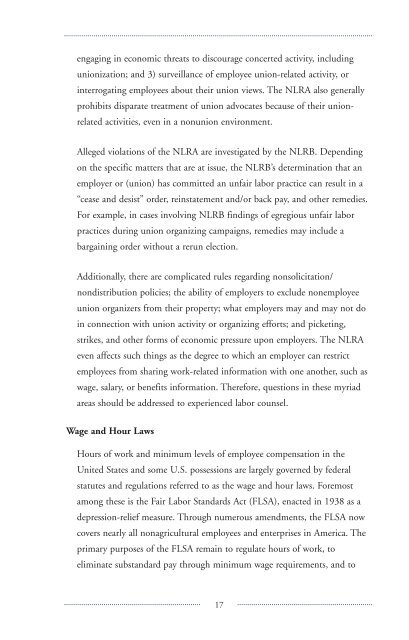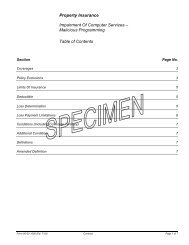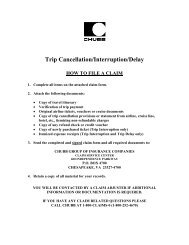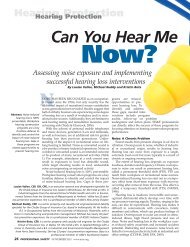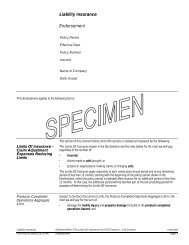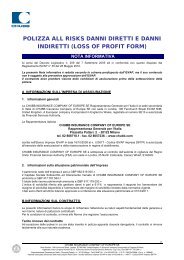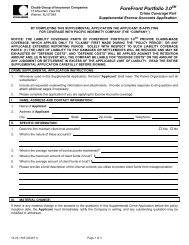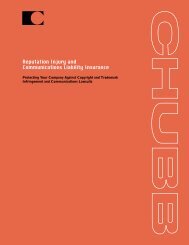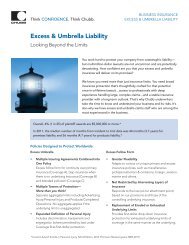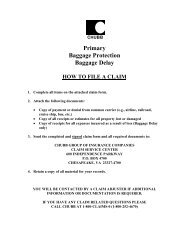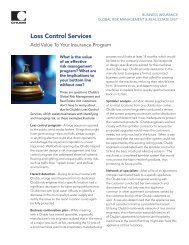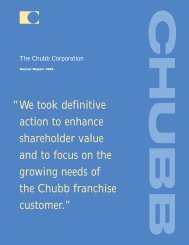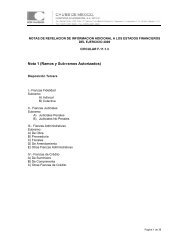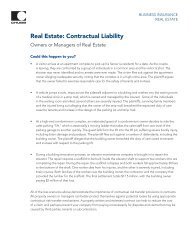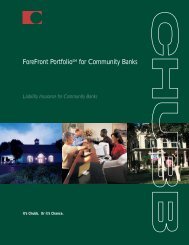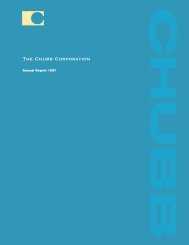Employment Practices Loss Prevention Guidelines - Chubb Group of ...
Employment Practices Loss Prevention Guidelines - Chubb Group of ...
Employment Practices Loss Prevention Guidelines - Chubb Group of ...
You also want an ePaper? Increase the reach of your titles
YUMPU automatically turns print PDFs into web optimized ePapers that Google loves.
engaging in economic threats to discourage concerted activity, including<br />
unionization; and 3) surveillance <strong>of</strong> employee union-related activity, or<br />
interrogating employees about their union views. The NLRA also generally<br />
prohibits disparate treatment <strong>of</strong> union advocates because <strong>of</strong> their unionrelated<br />
activities, even in a nonunion environment.<br />
Alleged violations <strong>of</strong> the NLRA are investigated by the NLRB. Depending<br />
on the specific matters that are at issue, the NLRB’s determination that an<br />
employer or (union) has committed an unfair labor practice can result in a<br />
“cease and desist” order, reinstatement and/or back pay, and other remedies.<br />
For example, in cases involving NLRB findings <strong>of</strong> egregious unfair labor<br />
practices during union organizing campaigns, remedies may include a<br />
bargaining order without a rerun election.<br />
Additionally, there are complicated rules regarding nonsolicitation/<br />
nondistribution policies; the ability <strong>of</strong> employers to exclude nonemployee<br />
union organizers from their property; what employers may and may not do<br />
in connection with union activity or organizing efforts; and picketing,<br />
strikes, and other forms <strong>of</strong> economic pressure upon employers. The NLRA<br />
even affects such things as the degree to which an employer can restrict<br />
employees from sharing work-related information with one another, such as<br />
wage, salary, or benefits information. Therefore, questions in these myriad<br />
areas should be addressed to experienced labor counsel.<br />
Wage and Hour Laws<br />
Hours <strong>of</strong> work and minimum levels <strong>of</strong> employee compensation in the<br />
United States and some U.S. possessions are largely governed by federal<br />
statutes and regulations referred to as the wage and hour laws. Foremost<br />
among these is the Fair Labor Standards Act (FLSA), enacted in 1938 as a<br />
depression-relief measure. Through numerous amendments, the FLSA now<br />
covers nearly all nonagricultural employees and enterprises in America. The<br />
primary purposes <strong>of</strong> the FLSA remain to regulate hours <strong>of</strong> work, to<br />
eliminate substandard pay through minimum wage requirements, and to<br />
17


